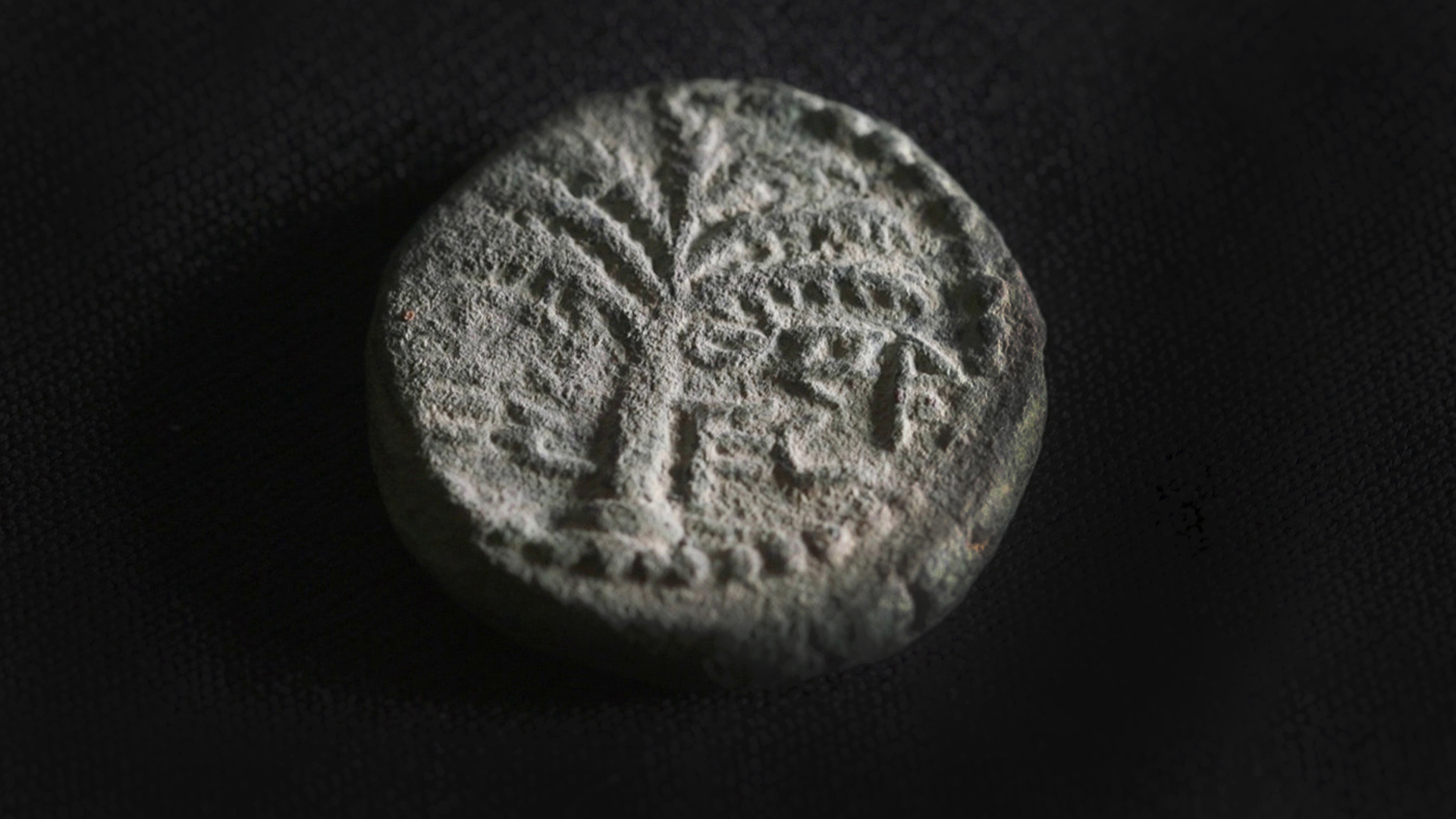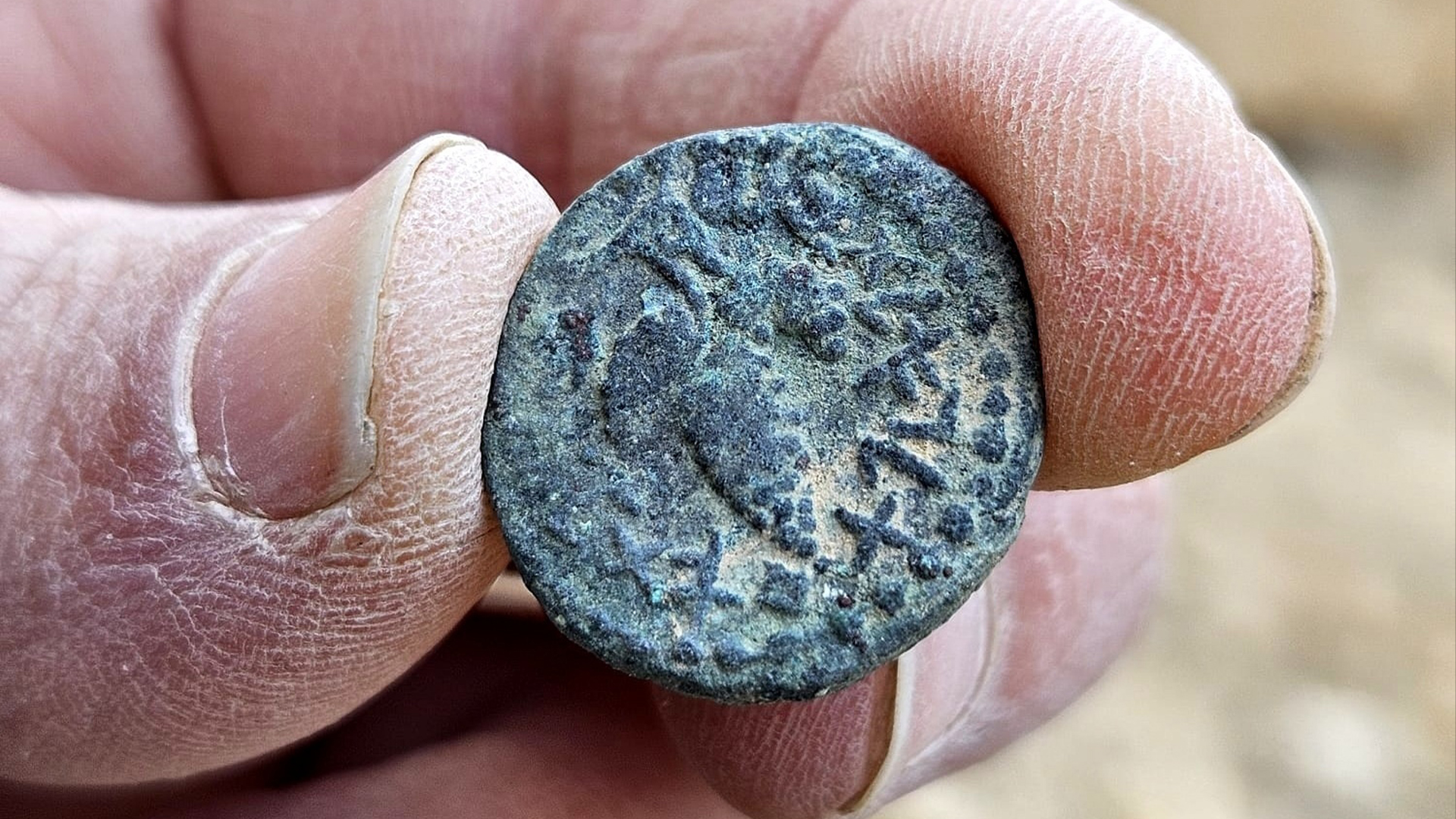
Four coins dating back almost 1,900 years, to when the Jewish people launched a revolt against the Roman Empire, have been discovered in the Judaean desert.
The coins were found in the Mazuq Ha-he'teqim Nature Reserve, which is located in the West Bank. They date to the time of the Bar Kokhba revolt (A.D. 132 to 135), when the Jewish people rose up against the Roman Empire. Although the revolt had some initial success, the Romans' counterattack resulted in mass slaughter.
"Five hundred and eighty thousand men were slain in the various raids and battles, and the number of those that perished by famine, disease and fire was past finding out … thus nearly the whole of Judaea was made desolate," Roman historian Cassius Dio wrote in his book "Roman history" (translation by Earnest Cary). While the accuracy of the death toll he gives is a matter of some debate, there is no doubt that it was very high and many caves where refugees hid from the Roman army have been found in the region.
Related: 'Extremely rare' 2,500-year-old broken silver coin unearthed near Jerusalem
One coin has a Hebrew inscription that translates to "Eleazar the Priest," which may refer to Eleazar Hamod'ai, a rabbi who lived in the town of Beitar, the headquarters of the revolt, representatives for the Israel Antiquities Authority said in a statement. Beside Eleazar's name is an engraving of a date palm.

On the other side of the coin is another Hebrew inscription, which says, "year one of the redemption of Israel." This indicates that the coin was minted in A.D. 132, during the first year of the revolt, the statement said. There is also an engraving of grapes.
The three other newly discovered coins have an inscription saying "Simeon," which may refer to Simeon (also spelled Simon) bar Kokhba, the leader of the revolt, according to the statement.
Israel Antiquities Authority researchers have been conducting a survey of the Judaean desert since 2017, in hopes of finding artifacts before they are looted. Since then, they've made a number of finds, including Roman swords and an ancient scroll containing part of the Book of Zechariah.
The work will continue with an excavation at Murabba'at Caves that will allow members of the public to volunteer.







